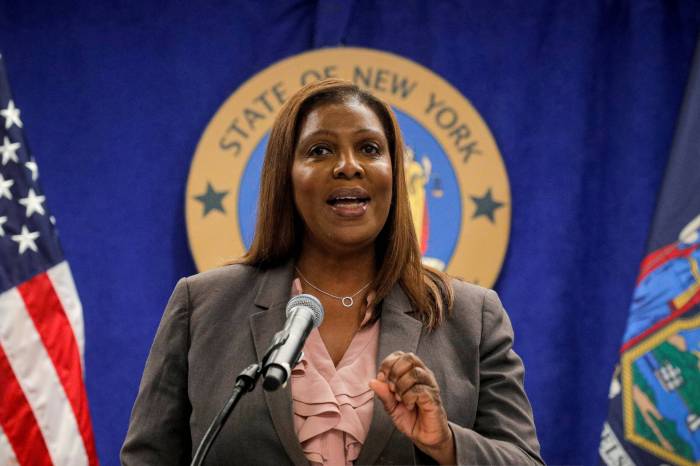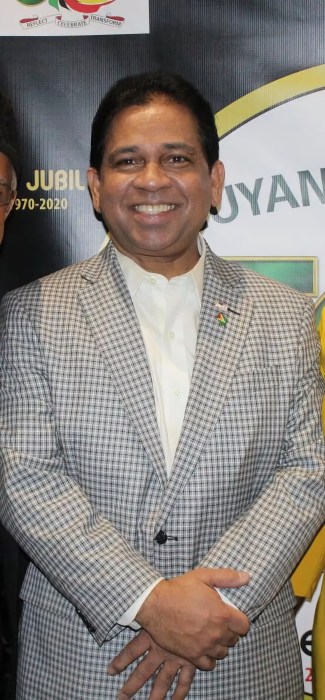Brooklyn Democratic Congresswoman Yvette D. Clarke on Wednesday strongly condemned the Trump administration’s threat to deport international students, including Caribbean nationals, whose universities transition to online-only learning amid the coronavirus (COVID-19) pandemic.
On Monday, the United States Immigration and Customs Enforcement (ICE) agency announced that nonimmigrant Caribbean and other students must leave the US if their colleges go fully online.
ICE said that its Student and Exchange Visitor Program (SEVP) announced modifications to temporary exemptions for nonimmigrant Caribbean and other students taking online classes, due to the COVID-19 pandemic, for the fall 2020 semester.
The US Department of Homeland Security plans to publish the procedures and responsibilities in the Federal Register as a “Temporary Final Rule,” ICE said.
“The recent decision by ICE and the White House do not prioritize public health nor the education of our next generation of leaders,” Clarke, the daughter of Jamaican immigrants, told Caribbean Life on Wednesday. “Instead it is just another naked attempt to callously force students to return to campuses in the fall, despite unsafe conditions, allowed to persist, primarily due to a lack of clear executive action.
“If we did not spend the early months of this crisis forcing states to fight each other for PPE (personal protective equipment), we might be in a better condition today,” added Clarke, representative for the 9th Congressional District in Brooklyn. “If we had expanded access to accurate testing to every county in the country, rather than deliberately slowing down the process, we may have been able to ensure the safety of students that would allow classes to commence in person in September.
“Instead, we are still struggling to widely implement and adopt mitigation measures to minimize the current surge in hospitalizations that has already caused death rates to rise again,” she continued. “Most schools likely do not have the resources to institute the necessary safety protocols to keep their students healthy.”
Clarke said that if the White House wants students to return to school in the Fall, Trump “should work with Congress to make sure every school has the resources they need to educate the public without risking disastrous public health outcomes.”
In its announcement, ICE said that nonimmigrant F-1 and M-1 students attending schools operating entirely online “may not take a full online course load and remain in the United States.”
Besides, it said the US Department of State will not issue visas to international students enrolled in schools and/or programs that are fully online for the fall semester nor will the US Customs and Border Protection agency permit these students to enter the United States.
“Active students currently in the United States enrolled in such programs must depart the country or take other measures, such as transferring to a school with in-person instruction to remain in lawful status,” ICE said. “If not, they may face immigration consequences including, but not limited to, the initiation of removal proceedings.”
ICE said nonimmigrant F-1 students attending schools operating under normal in-person classes are bound by existing US federal regulations.
It said eligible F students may take a maximum of one class or three credit hours online.
ICE also said that nonimmigrant F-1 students attending schools adopting a hybrid model—that is, a mixture of online and in person classes — will be allowed to take more than one class or three credit hours online.
But ICE said these schools must certify to SEVP, through the Form I-20, “Certificate of Eligibility for Nonimmigrant Student Status,” certifying that the program is not entirely online, that the student is not taking an entirely online course load this semester, and that the student is taking the minimum number of online classes required to make normal progress in their degree program.
ICE said the above exemptions do not apply to F-1 students in English language training programs or M-1 students pursing vocational degrees, who are not permitted to enroll in any online courses.
“Schools should update their information in the Student and Exchange Visitor Information System (SEVIS) within 10 days of the change if they begin the fall semester with in-person classes but are later required to switch to only online classes, or a nonimmigrant student changes their course selections, and as a result, ends up taking an entirely online course load,” ICE said.
“Nonimmigrant students within the United States are not permitted to take a full course of study through online classes,” it added. “If students find themselves in this situation, they must leave the country or take alternative steps to maintain their nonimmigrant status, such as a reduced course load or appropriate medical leave.
“Due to COVID-19, SEVP instituted a temporary exemption regarding online courses for the spring and summer semesters,” ICE continued. “This policy permitted nonimmigrant students to take more online courses than normally permitted by federal regulation to maintain their nonimmigrant status during the COVID-19 emergency.”
It said F-1 nonimmigrant students pursue academic coursework, and M-1 nonimmigrant students pursue vocational coursework while studying in the United States.
Monday’s announcement came as several US universities, such as the Ivy League Harvard University in Massachusetts, have begun transitioning to online learning amid the COVID-19 pandemic.
On Wednesday, Harvard and another Ivy League university, the Massachusetts Institute of Technology (MIT), filed a law suit against the Trump administration in US federal court in attempting to prohibit the new directive from going into effect.
Massachusetts Attorney General Maura Healey offered the state’s full support to Harvard and MIT.
“Massachusetts is home to thousands of international students who should not fear deportation or be forced to put their health and safety at risk in order to advance their education,” said Healey in a statement. “This decision from ICE is cruel, it’s illegal, and we will sue to stop it.”
Harvard University and MIT said the new Trump policy was “politically-motivated,” adding that it would create further confusion in higher education.
Lawrence S. Bacow, Harvard’s president, also described as reckless, the Trump administration’s latest policy, stating, in a statement, that it is seemingly geared towards pressuring universities to conduct in-person classes “without regard to concerns for the health and safety of students, instructors and others.”
























